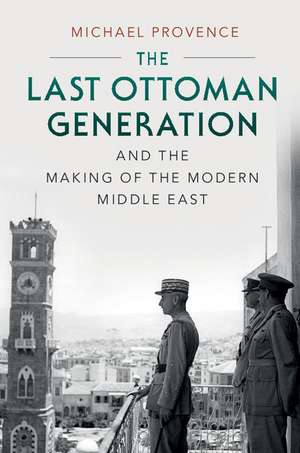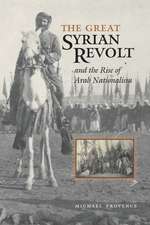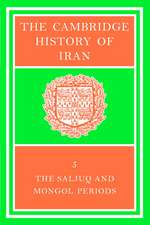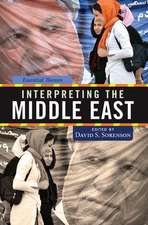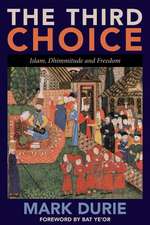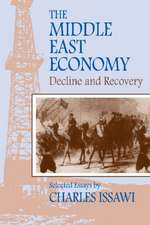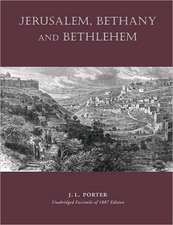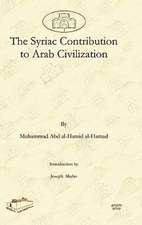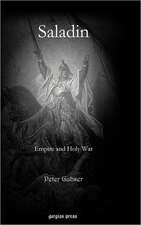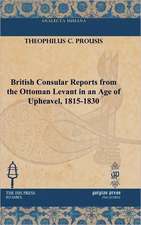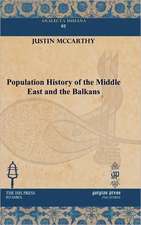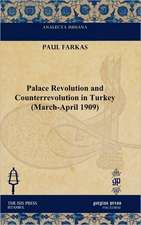The Last Ottoman Generation and the Making of the Modern Middle East
Autor Michael Provenceen Limba Engleză Paperback – 17 aug 2017
| Toate formatele și edițiile | Preț | Express |
|---|---|---|
| Paperback (1) | 202.55 lei 3-5 săpt. | |
| Cambridge University Press – 17 aug 2017 | 202.55 lei 3-5 săpt. | |
| Hardback (1) | 686.40 lei 6-8 săpt. | |
| Cambridge University Press – 17 aug 2017 | 686.40 lei 6-8 săpt. |
Preț: 202.55 lei
Nou
Puncte Express: 304
Preț estimativ în valută:
38.76€ • 40.58$ • 32.15£
38.76€ • 40.58$ • 32.15£
Carte disponibilă
Livrare economică 19 martie-02 aprilie
Preluare comenzi: 021 569.72.76
Specificații
ISBN-13: 9780521747516
ISBN-10: 0521747511
Pagini: 314
Ilustrații: 15 b/w illus. 4 maps
Dimensiuni: 152 x 225 x 15 mm
Greutate: 0.53 kg
Editura: Cambridge University Press
Colecția Cambridge University Press
Locul publicării:Cambridge, United Kingdom
ISBN-10: 0521747511
Pagini: 314
Ilustrații: 15 b/w illus. 4 maps
Dimensiuni: 152 x 225 x 15 mm
Greutate: 0.53 kg
Editura: Cambridge University Press
Colecția Cambridge University Press
Locul publicării:Cambridge, United Kingdom
Cuprins
1. Introduction; 2. Ottoman modernity in the long nineteenth century: training state servants and making citizens; 3. The theory and practice of colonialism in the post-Ottoman Middle East; 4. Losing the war and fighting the settlement: the post-Ottoman Middle East takes shape, 1918–22; 5. League of Nations hopes and disappointments: the return of armed struggle in the post-Ottoman era, 1923–7; 6. Colonial constitutions and treaties: post-Ottoman militarism, 1927–36; 7. The final days of the last Ottoman generation, 1936–8; 8. Epilogue and conclusion.
Recenzii
'A brilliant new history that captures the Ottoman foundations of the modern Middle East in the decades between the First and Second World Wars. The hopes and disappointments of the interwar years shaped the Arab world down to the present day. Engagingly written, Michael Provence brings this era to life for readers today.' Eugene Rogan, University of Oxford
'This is a wonderfully original book, a merciless reconstruction of the British and French mandates in the Middle East as local contemporaries would have experienced them.' Peter Sluglett, National University of Singapore
'This remarkable work examines how the peoples of the Middle East perceived their present and future before the cataclysm of World War I, famine and death, Ottoman collapse and foreign occupation completely reshaped their region. Instead of looking at the main features that we think of when we look back on the twentieth century in the Middle East, The Last Ottoman Generation and the Making of the Modern Middle East rather starts with the hopes and expectations of an elite in what became the separate Arab states and Turkey that in many respects shared a common background, expectations and outlook. This is an original and illuminating interpretation of events in a region that is still deeply affected by the transformations that Michael Provence illustrates so perceptively.' Rashid Khalidi, Edward Said Professor of Modern Arab Studies, Columbia University
'Michael Provence's book is a revelation. Casting aside the old pieties of state nationalism, Provence sets the story of the Arab Middle East in the first half of the twentieth century squarely in the context of the late-Ottoman scene, bringing to life the world of soldiers, politicians and intellectuals struggling to cope with the loss of the Ottoman system, which they believed was a fairer dispensation than the colonial nation states imposed on the Middle East in the wake of World War I. Deeply researched and written in clear, compelling prose, this book is essential reading for anyone who wants a deeper understanding of the history of the modern Middle East.' Laila Parsons, McGill University, Canada
'[This book] is a definitive study of this crucial period in Middle Eastern history, tracing the period through popular political movements and the experience of colonial rule. In doing so, Provence emphasizes the continuity between the late Ottoman and Colonial era, explaining how national identities emerged, and how the seeds were sown for many of the conflicts which have defined the Middle East in the late twentieth and early twenty-first centuries. An invaluable read for students of Middle Eastern history and politics …' James A Cox, Library Bookwatchs
'The insightful study taps into most of the scholarship exploring this crucial period and primary archival sources found in France, Turkey, and Britain. Provence makes the case for thinking of the interaction between indigenous and foreign forces as crucial to understanding the current state of affairs in the region. In this respect, students of the Middle East will gain from consulting a book that is the best of its genre. As such, it is critical reading for upper-level undergraduates and graduate students. Essential.' I. Blumi, Choice
'… a stimulating semi-revisionist history focusing on continuities rather than ruptures … The book excavates remarkable details from the years of flux after the collapse of the Ottoman state.' The Hurriyet Daily News
'This is a wonderfully original book, a merciless reconstruction of the British and French mandates in the Middle East as local contemporaries would have experienced them.' Peter Sluglett, National University of Singapore
'This remarkable work examines how the peoples of the Middle East perceived their present and future before the cataclysm of World War I, famine and death, Ottoman collapse and foreign occupation completely reshaped their region. Instead of looking at the main features that we think of when we look back on the twentieth century in the Middle East, The Last Ottoman Generation and the Making of the Modern Middle East rather starts with the hopes and expectations of an elite in what became the separate Arab states and Turkey that in many respects shared a common background, expectations and outlook. This is an original and illuminating interpretation of events in a region that is still deeply affected by the transformations that Michael Provence illustrates so perceptively.' Rashid Khalidi, Edward Said Professor of Modern Arab Studies, Columbia University
'Michael Provence's book is a revelation. Casting aside the old pieties of state nationalism, Provence sets the story of the Arab Middle East in the first half of the twentieth century squarely in the context of the late-Ottoman scene, bringing to life the world of soldiers, politicians and intellectuals struggling to cope with the loss of the Ottoman system, which they believed was a fairer dispensation than the colonial nation states imposed on the Middle East in the wake of World War I. Deeply researched and written in clear, compelling prose, this book is essential reading for anyone who wants a deeper understanding of the history of the modern Middle East.' Laila Parsons, McGill University, Canada
'[This book] is a definitive study of this crucial period in Middle Eastern history, tracing the period through popular political movements and the experience of colonial rule. In doing so, Provence emphasizes the continuity between the late Ottoman and Colonial era, explaining how national identities emerged, and how the seeds were sown for many of the conflicts which have defined the Middle East in the late twentieth and early twenty-first centuries. An invaluable read for students of Middle Eastern history and politics …' James A Cox, Library Bookwatchs
'The insightful study taps into most of the scholarship exploring this crucial period and primary archival sources found in France, Turkey, and Britain. Provence makes the case for thinking of the interaction between indigenous and foreign forces as crucial to understanding the current state of affairs in the region. In this respect, students of the Middle East will gain from consulting a book that is the best of its genre. As such, it is critical reading for upper-level undergraduates and graduate students. Essential.' I. Blumi, Choice
'… a stimulating semi-revisionist history focusing on continuities rather than ruptures … The book excavates remarkable details from the years of flux after the collapse of the Ottoman state.' The Hurriyet Daily News
Notă biografică
Descriere
A study of the period of armed conflict following the collapse of the Ottoman Empire in the Middle East.
